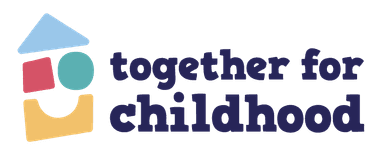Young Dads Collective North
In May 2016 the Leeds Social Sciences Institute awarded £15,000 in funding for the “Responding to Young Dads” (RYD) project. This project built on findings and collaborations established from the ESRC funded Following Young Fathers (FYF) study, and related findings and analysis of a subset of this data from the affiliated Men, Poverty and Lifetimes of Care (MPLC) study1.
The project was practitioner led and involved a collaboration between local and national organisations who were original partner organisations of the network that formed as part of the Following Young Fathers study. Dr Anna Tarrant was the academic lead and worked in close collaboration with the FYF director, Prof. Bren Neale.
The methodology of Responding to Young Fathers in a Different Way was foundational to the co-creation work in the Following Young Fathers Further study.
The RYD project consisted of three interrelated work packages that broadly sought to:
- extend and improve policy and practice with young fathers nationally;
- increase recognition of the multiple challenges faced by young fathers; and
- provide young fathers with increasing opportunities to engage in advocacy and collective support.
Work Package 1
Launching the Young Dads Collective North (May-Dec 2016)
Collaborators
Forming a collaboration between the Family and Child Care Trust and Leeds City Council, this package was designed to roll out the very successful work of the London based Young Dads Collective (YDC). The Following Young Fathers (FYF) project demonstrated that young fathers are often marginalised and side-lined in professional settings, and that there is a pressing need to challenge – and change – the way that young fathers are represented and understood in society (Neale and Davies, 20152).
One of the most effective ways to do this is to empower selected young fathers as 'experts by experience', who are supported and trained in advocacy work on behalf of other young fathers and engage in practitioner training and consultation.
The Young Dads Collective is designed to do just that.
This work package enabled us to facilitate the first national expansion of the work of the Young Dads Collective, by rolling out good practice to the north of England. One of the fundamental issues identified in the FYF study was the problem of recognising young fathers, identifying them and responding positively to them. The Young Dads Collective directly addresses this finding by giving effective voices to a wider constituency of young fathers.
The establishment of the Young Dads Collective North was the first step in implementing the Young Dads Collective model nationally. Key learning from this process is now being brought to the establishment of the Grimsby Dads Collective.
Work Package 2
Continuity of support for young offender fathers: an initiative to support resettlement following custody (May-Dec 2016)
Collaborators
In collaboration with an award winning nurse practitioner at the Oakhill STC, this package aimed to improve continuity of support for vulnerable young offender fathers when they are released back into the community. Part of the focus was on improving inter-agency collaboration between those working within and beyond the secure estate.
Findings from the FYF study highlight the effectiveness of specialist support for vulnerable young fathers in custodial settings (Neale and Ladlow, 2015).3 Such support can do much to create a sense of identity as a father for these young men and can provide a positive alternative to their identity and reputations as criminals. Continuity of care is sorely needed if these fledgling identities are to be consolidated. This requires inter-agency co-operation and working, in a context where much professional thinking is currently driven by a risk/surveillance mind set.
The pilot tracked and supported a small group of young fathers who engaged well with professional support in custody, as they made the transition to resettlement. You can read more about the findings in the final report.
Work Package 3 – December 2016 - April 2017
Developing practitioner training: responding to young fathers in a different way
The FYF study found that while pockets of good practice exist, there is no coherent or unifying policy or professional approach to recognising young fathers and understanding and responding to their needs (Neale and Davis, 2015).5 The focus of this work package was two-fold, including:
- a review of existing training provision, initially in the North of England, to see where there may be gaps, and
- developing and piloting a one-day training event for practitioners working with young fathers/young parents/young men.
The training event had the scope to be delivered more widely across different local authorities to increase the capacity of professionals in health and social care to support young fathers. The work package integrated the FYF findings with evidence and good practice developed from the other two work packages, and was practitioner led.
Other members of the FYF practitioner network including academic and non-academic partners were involved.
Key outputs from the study report on the process and outcomes of the study, which proved to be foundational to the development of the key strands of the Following Young fathers Further study.
Download Supporting Young Fathers in Welfare Settings: Evidence ReviewpdfDownload Responding to Young Fathers in a Different Way: Final Reportpdf



